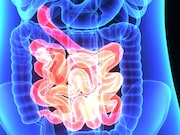Risk for Clostridiodes difficile infection significantly greater with diagnosis of liquid tumors
WEDNESDAY, Aug. 21, 2019 (HealthDay News) — Older adults with cancer have increased odds of developing Clostridiodes difficile infection (CDI), according to a study published in the September issue of Emerging Infectious Diseases, a publication of the U.S. Centers for Disease Control and Prevention.
Mini Kamboj, M.D., from the Memorial Sloan Kettering Cancer Center in New York City, and colleagues conducted a retrospective cohort study with a nested case-control analysis to examine the risk for CDI among older adults with cancer. Data were included for 93,566 Medicare beneficiaries; a nested case-control analysis included 2,421 case patients with CDI and 12,105 matched controls.
The researchers found that 2.6 percent of the 93,566 Medicare beneficiaries had CDI during the study period. In unadjusted analyses, the proportion was 2.8 versus 2.4 percent among patients with versus without cancer. In the nested case-control analysis, the odds of developing CDI were elevated among cancer patients (adjusted odds ratio, 1.15). An underlying diagnosis of a liquid tumor was significantly associated with an increased risk for CDI compared with no cancer diagnosis (adjusted odds ratio, 1.74). For patients with a solid tumor, the odds of developing CDI were elevated for those with a recent cancer diagnosis and with a distant metastasis at diagnosis. The findings were independent of previous health care-associated exposure.
“The burden of CDI among older adults is greater among those with underlying cancer,” the authors write. “These findings can be used to guide CDI prevention strategies.”
Copyright © 2019 HealthDay. All rights reserved.








